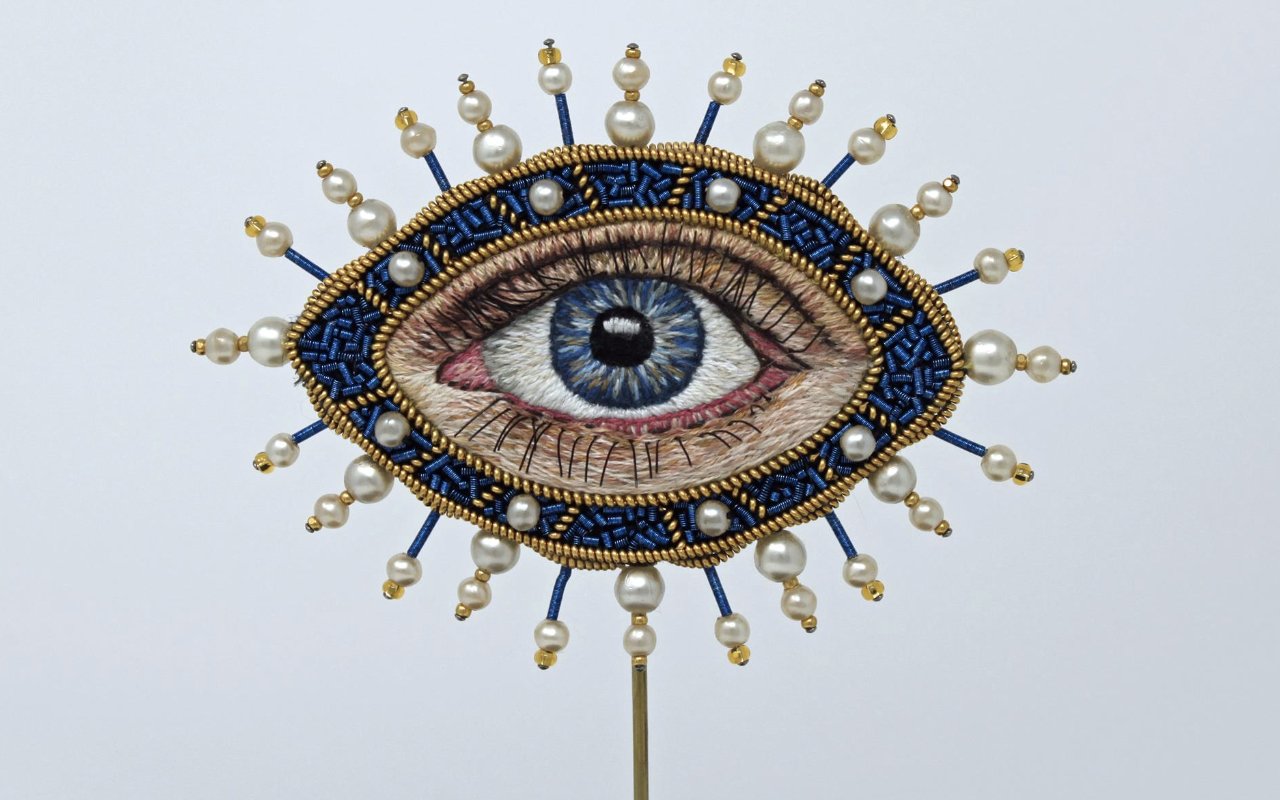
Amulet Against Eye Contact by Tzipporah Johnston
Photo: Neuk Collective
Neurodivergence manifesto a ‘call for change’
New recommendations around employment and lobbying for benefits will be “hard to ignore”, creatives say.
A new 10-point manifesto will address the "unfair disadvantage" faced by neurodivergent artists.
Founded by artists Robyn Benson, Dylan Esposito, Dawnne McGeachy and Tzipporah Johnston, Neuk Collective says a career in the arts consists of social, administrative, and organisational tasks that makes the sector less accessible to neurodivergent artists.
All neurodivergent creatives surveyed by the group had experienced barriers caused by finances or attitudes in the industry.
READ MORE:
- New guide to ’break down stigma’ for autistic creatives
- Disabled artists’ programme moves to Wakefield
Johnston said the manifesto is “a call for change”, advocating more accessible working environments, respect around communication preferences and an acknowledgement of the burden current systems create.
“The art world is particularly difficult for neurodivergent people to navigate because it’s really not designed with us in mind.”
Hull-based neurodivergent artist and curator Sam Metz said the manifesto’s creation was “really reassuring”.
“It feels great to have a collective articulating the ways that organisations can remove barriers for artists, like a kind of solidarity which is needed as working as a freelance neurodivergent artist can be isolating.”
Neuk Collective received support through Creative Scotland’s Create:Inclusion programme. Visual Arts Officer Sarah MacIntyre said the project is a reminder that we all view the world differently, putting career progression on far from a level playing field.
“As we emerge from the pandemic there is an opportunity to take stock and to rethink the systems that are in place to support artists, ensuring that they are inclusive and accessible.”
Benefit reforms
Organisations working with disabled artists should urgently pursue benefit reforms, the manifesto says.
Johnston says Universal Basic Income can stop disabled creatives being “caught in a benefits trap,” as eligibility criteria for disability benefits often prevents artists selling their work.
“Many disabled artists are effectively shut out and kept as perpetual amateurs,” she explained.
“[It] adds to the overall marginalisation of all disabled artists. It’s a kind of indirect disability discrimination, creating a professional system in which we cannot thrive but also closing down our options for finding other ways in.”
98% of those surveyed by Neuk said they feel “trapped” by the benefits system and supported lobbying for reforms.
Whether the collective’s Neurodivergent Artists Network – open to any artist living, working or with significant connections to Scotland – focuses on lobbying will depend on the priorities of the artists involved.
Its first initiative is to create a directory of neurodivergent artists and their skillsets to increase visibility and commissioning opportunities.
Employee guidance
The manifesto also calls for clearer job applications, flexible timescales and realistic expectations in the workplace.
Over 90% of survey respondents said tailored opportunities, mentoring schemes and support with job applications would address barriers to employment.
The British Interactive Marketing Association estimates one in five of the UK’s creative labour force is neurodivergent, compared to one in seven across the adult population.
Research by Charles Freeman and Becki Morris found neurodivergent graduates are just as likely to be employed as their neurotypical peers, but disproportionately on a temporary or freelance basis.
Their review, submitted to DCMS as part of an inquiry into the impact of Covid-19, recommended all Arts Council England-funded organisations become best practice employers in relation to neurodiversity.
Neuk has released a best practice guide alongside their manifesto. Neurodivergent artist Sonia Boue said that whilst there has historically been a poor take up of resources made by neurodivergent artists, Neuk’s will be “hard to ignore”.
“Ultimately what is required is a more fundamental culture shift – there is now no excuse for not knowing where to start.”
Join the Discussion
You must be logged in to post a comment.